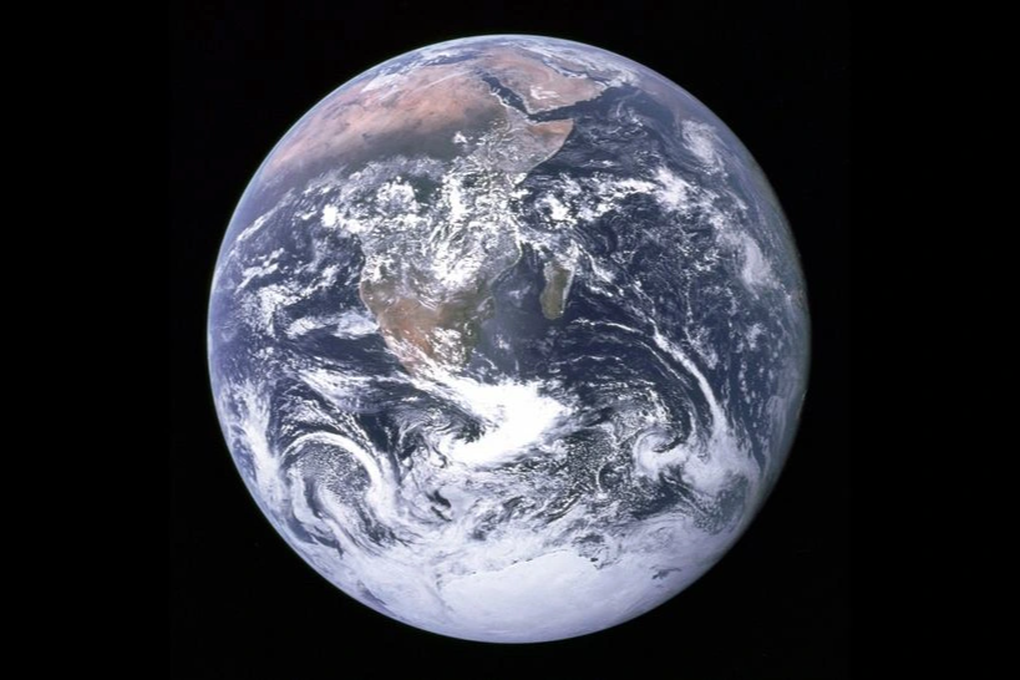On July 9, the Earth will rotate faster than usual, making each day shorter.
This is not an isolated phenomenon, but part of a series of unusual rotational fluctuations that have been closely monitored by scientists since 2020.
Why does the Earth rotate unevenly?
Normally, a day on Earth lasts 24 hours, or 86,400 seconds. But in reality, the Earth's rotation speed is not completely fixed. It can fluctuate by a few milliseconds each day due to various factors.
Notably, the gravitational force from the Moon and the Sun causes tides and affects the Earth's rotational inertia. Not only that, geological activities such as earthquakes, volcanic eruptions... occurring in the subsurface can also slow down or speed up the Earth's rotation.

Illustration photo: Getty.
Along with that, global climate changes, especially the melting of ice at the poles, also change the distribution of mass on the planet's surface, making the Earth's rotation speed difficult to predict.
According to a report from Timeanddate.com , on July 9, July 22, and August 5, the Earth will rotate faster than average. These will be the three shortest days in 2025 in terms of the Earth's actual rotation time on its axis.
specifically, on July 9, the length of the day is expected to be 1.30 milliseconds shorter than the standard 86,400 seconds. This phenomenon continues on July 22, with a predicted shortening of 1.38 milliseconds, and peaks on August 5, when the Earth can complete one rotation on its axis in just 1.51 milliseconds shorter than average.
Although this difference is very small and cannot be seen by the naked eye, it is of great significance in international standard timekeeping systems, and also shows the continuing trend of the Earth's hurried rotation.
Is the Earth entering a phase of "acceleration"?
Before 2020, no day had ever been shorter than the standard by more than 1 millisecond, but in the past five years, days shorter by half a millisecond have become more common, mostly in the summer.
The most recent record was set on July 5, 2024, when the Earth rotated so fast that it was 1.66 milliseconds shorter than average.
This scientists wondered: Is the Earth entering a period of accelerated rotation?

However, if the trend of the Earth's rapid rotation continues, we may need to subtract a leap second in 2029 (Photo: Getty).
Professor Leonid Zotov, an expert in Earth rotation at Moscow State University, said that current physical models, including ocean currents and global atmospheric circulation, are not capable of explaining the rate of rotational acceleration that the Earth has experienced in recent years.
According to him, this phenomenon most likely originates from complex dynamic processes taking place deep inside the Earth, specifically in the planet's core, which remains a great mystery to modern science.
However, so far, the evidence and data collected are still not enough to clearly determine the specific cause, and researchers will need more time to build more accurate simulation models to explain this phenomenon.
This small change has no effect on daily life, but it has great significance in maintaining the global standard time system.
Specifically, since the 1970s, to synchronize atomic time (which requires high precision) and astronomical time (which depends on the rotation of the Earth), international organizations often add a "leap second" at the end of the year or in the middle of the year when necessary.
However, if the trend of Earth's rapid rotation continues, we may need to subtract a leap second in 2029, something that has never happened in modern history.
However, experts say this is not a long-term trend. Over the geological scale of millions of years, the Earth has been slowing down, as a natural consequence of the interaction with the Moon and the planet's long-term changes.
Source: https://dantri.com.vn/khoa-hoc/vi-sao-ngay-97-thoi-gian-tren-trai-dat-se-ngan-lai-20250707055635775.htm








































































































Comment (0)